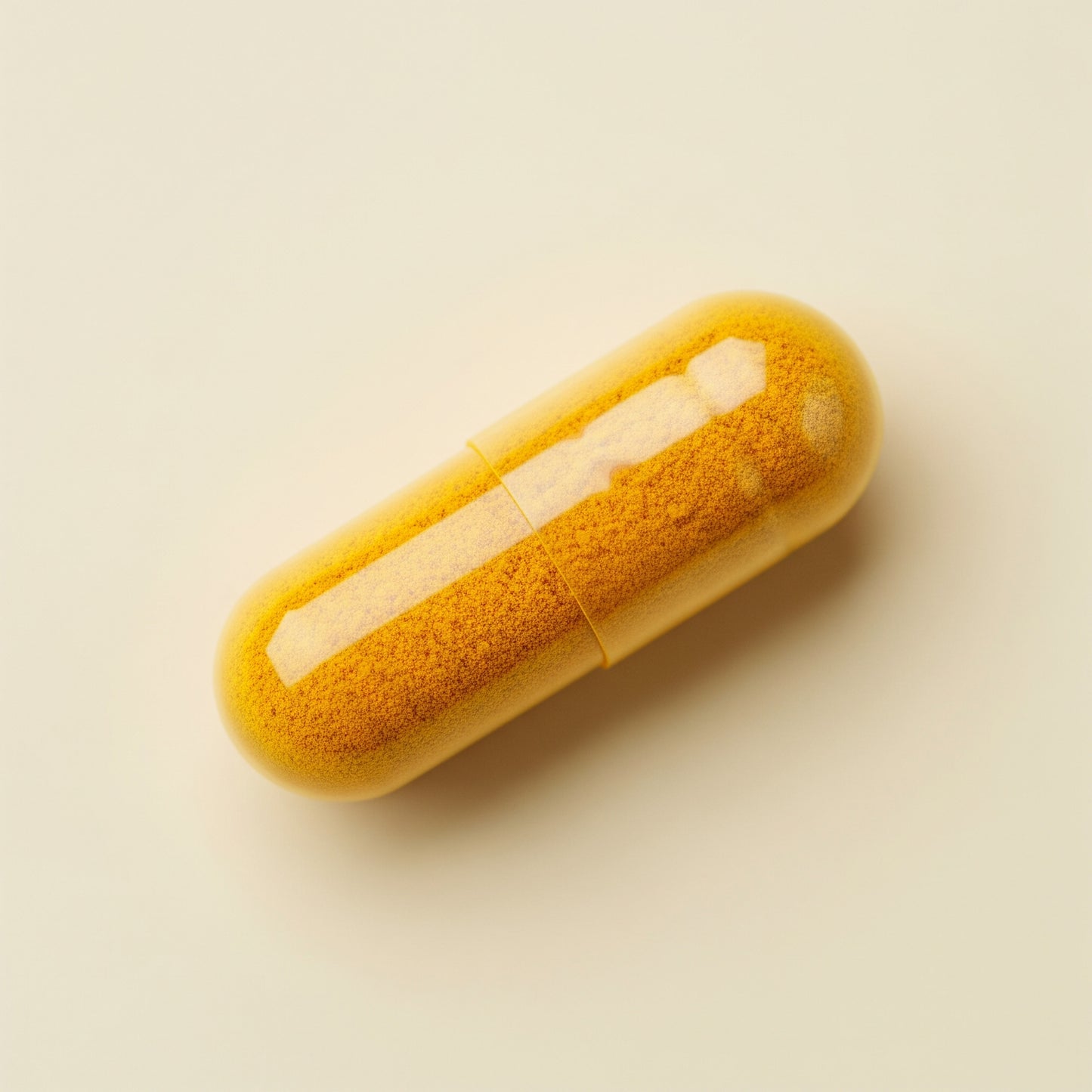TBD
30 Day Supply - Turmeric - Inflammation Support, Antioxidant, Heart Health, Brain Health, and Digestive Health
30 Day Supply - Turmeric - Inflammation Support, Antioxidant, Heart Health, Brain Health, and Digestive Health
Couldn't load pickup availability
Turmeric is a spice that has been used for centuries in traditional medicine and cooking. Its primary active compound, curcumin, is a powerful anti-inflammatory and antioxidant agent. While simply adding turmeric to your food can be beneficial, supplements often contain concentrated curcumin and are used to target specific health concerns.
Here are some of the main reasons people take turmeric as a supplement:
- Anti-inflammatory Effects: This is the most well-known benefit of curcumin. It can help reduce inflammation throughout the body, which is a key factor in many chronic diseases. This makes it a popular supplement for conditions like arthritis and joint pain. Studies have shown it can help ease pain and stiffness in people with osteoarthritis, sometimes with effects comparable to mild anti-inflammatory medications.
- Antioxidant Properties: Curcumin helps to neutralize free radicals, unstable molecules that can cause cellular damage and contribute to aging and disease. By boosting the body's antioxidant capacity, it may help protect against a variety of health issues.
- Heart Health: Turmeric may support cardiovascular health by improving the function of the endothelium, the lining of blood vessels. Endothelial dysfunction is a major driver of heart disease. Some research also suggests it may help regulate cholesterol and triglycerides.
- Brain Health: While more research is needed, animal and early human studies hint that curcumin may protect against brain inflammation and oxidative stress. This has led to interest in its potential to support cognitive function and memory over time.
- Digestive Health: The anti-inflammatory properties of turmeric may help soothe digestive issues like bloating and mild IBS symptoms.
Important Considerations and Potential Side Effects:
Absorption: Curcumin is poorly absorbed by the body on its own. Many supplements are formulated to improve bioavailability by including piperine, a compound found in black pepper, or by using specific technologies. Taking it with a fatty meal can also help.
Dosage: The dosage can vary widely depending on the condition being addressed and the concentration of curcumin in the supplement. Doses used in studies typically range from 500 to 2,000 mg per day. It's best to consult a healthcare professional to determine the right dosage for you.
Side Effects: While generally considered safe, high doses of turmeric or curcumin supplements can cause side effects such as:
- Gastrointestinal upset (nausea, diarrhea, stomach pain)
- Increased risk of bleeding, especially for those on blood-thinning medications
- Rare cases of liver injury have been reported with high-potency supplements.
- Potential for kidney stones in susceptible individuals due to its oxalate content.
Drug Interactions:
Turmeric may interact with certain medications, including blood thinners, antidiabetic drugs, and antacids. Always talk to your doctor before starting a turmeric supplement, especially if you are pregnant, breastfeeding, or have a pre-existing health condition.
Share


